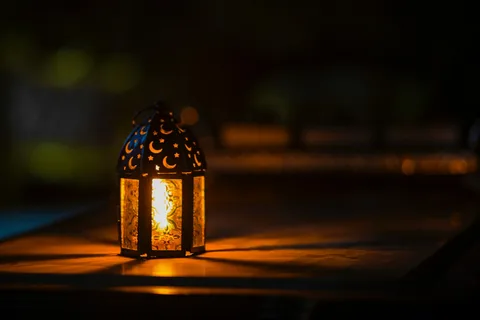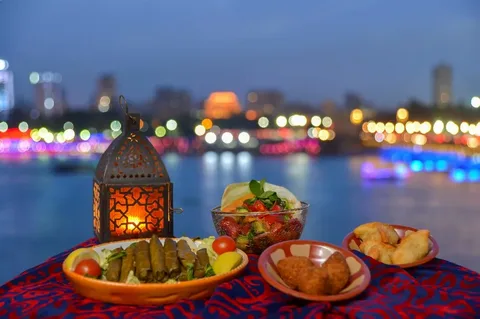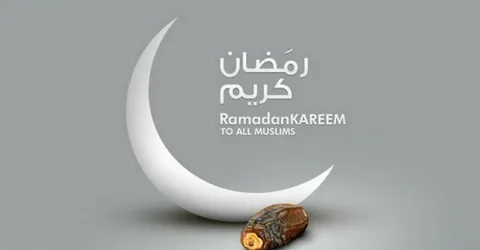Ramadan, the holiest month in Islam, is a time of spiritual reflection, self-improvement, and heightened devotion for Muslims worldwide. As the lunar month unfolds, Muslims engage in fasting, prayer, and acts of charity. For those unfamiliar with Ramadan traditions, knowing what do you say to someone celebrating ramadan can foster meaningful connections and demonstrate cultural sensitivity.
Understanding Ramadan

Ramadan holds profound significance in Islam as it commemorates the month when the Quran, the holy book of Islam, was first revealed to Prophet Muhammad. This month-long observance involves fasting from dawn until sunset, abstaining from food, drink, smoking, and other physical needs. It’s a time for Muslims to focus on spiritual growth, self-discipline, and empathy for those less fortunate.
abstaining from food, drink, smoking, and other physical needs as a form of spiritual discipline. The fast is broken each evening with a meal called iftar, often beginning with the eating of dates and water, followed by a larger meal. The pre-dawn meal before the fast begins is called suhoor.
In addition to fasting, Ramadan is a time for increased prayer and reading of the Quran, the holy book of Islam. Many Muslims also engage in acts of charity and community service during this month, striving to deepen their spiritual connection and strengthen their relationship with Allah.
Ramadan culminates in the celebration of Eid al-Fitr, which marks the end of the fasting period. It’s a time of joy, feasting, and giving thanks for the blessings received during Ramadan.
what do you say to someone celebrating ramadan
Greeting someone during Ramadan is an opportunity to acknowledge and respect their religious observance while fostering goodwill and understanding.
Common Ramadan Greetings
The most common greetings exchanged during Ramadan are “Ramadan Mubarak” and “Ramadan Kareem.” “Ramadan Mubarak” translates to “Blessed Ramadan,” while “Ramadan Kareem” means “Generous Ramadan.” These greetings convey well wishes for a blessed and generous month ahead, filled with spiritual growth and blessings.
Other Ways to Greet
Beyond the traditional greetings, you can offer blessings such as “May you have a spiritually fulfilling Ramadan” or simply share wishes for a peaceful and blessed month. Adding a personal touch to your greeting can make it more meaningful and heartfelt.
When to Greet
It’s appropriate to greet someone with Ramadan wishes at the beginning of the month and throughout its duration. However, it’s essential to be mindful of cultural differences and individual preferences. Some may prefer to receive greetings only at specific times or occasions.
Personalized Greetings
Tailoring your greetings to the individual can enhance the sincerity and warmth of your message. You can inquire about their fasting experience, express admiration for their commitment to spiritual growth, or offer support and encouragement for their journey through Ramadan.
Responding to Ramadan Greetings
When receiving Ramadan greetings, it’s customary to express gratitude and reciprocate the greeting. You can respond with “Thank you, and Ramadan Mubarak/Kareem to you as well,” acknowledging the well wishes and extending them in return.
Non-Muslims and Ramadan Greetings
Non-Muslims can also participate in acknowledging Ramadan without appropriating the religious significance. Respectful interactions, such as expressing curiosity about Ramadan customs or offering words of support, can foster understanding and inclusivity.
Muslim traditions in the month of Ramadan

Ramadan is the ninth month of the Islamic lunar calendar and is considered the holiest month for Muslims. It is a time of fasting, prayer, reflection, and community for Muslims worldwide. Here are some key traditions observed during Ramadan:
- Fasting (Sawm): Fasting during daylight hours is one of the Five Pillars of Islam, obligatory for all adult Muslims (with exceptions for those who are ill, pregnant, breastfeeding, menstruating, traveling, or elderly). The fast begins at dawn (Suhoor) and ends at sunset (Iftar), with no food, drink, smoking, or marital relations allowed during fasting hours.
- Prayer (Salah): Muslims are encouraged to increase their prayers and recitation of the Quran during Ramadan. Taraweeh prayers, which are special night prayers performed in congregation at mosques, are also observed during this month.
- Charity (Zakat and Sadaqah): Ramadan emphasizes generosity and helping those in need. Muslims are encouraged to give to charity, both through Zakat (obligatory almsgiving) and Sadaqah (voluntary charity).
- Iftar: The meal to break the fast at sunset is called Iftar. Traditionally, Muslims break their fast with dates and water, following the practice of Prophet Muhammad, before performing the Maghrib prayer. This is followed by a larger meal with family and friends.
- Suhoor: The pre-dawn meal eaten before beginning the fast is called Suhoor. It is consumed before the Fajr prayer and often consists of high-energy foods to sustain individuals throughout the day.
- Community and Family: Ramadan is a time for increased family and community gatherings. Many mosques organize Iftar meals for the community, and families often invite friends and relatives to share in the evening meal.
- Night of Power (Laylat al-Qadr): Muslims believe that during one of the last ten nights of Ramadan, usually on an odd-numbered night, the Quran was first revealed to Prophet Muhammad. This night, known as Laylat al-Qadr, is considered the holiest night of the year, and Muslims spend it in prayer and supplication, seeking forgiveness and blessings.
- Increased Recitation of the Quran: Muslims aim to complete the recitation of the entire Quran during Ramadan. Many mosques organize Quran recitation sessions, and individuals make extra efforts to read and understand the Quran during this month.
These are some of the core traditions observed by Muslims during the month of Ramadan, fostering spiritual growth, community bonding, and acts of kindness and generosity.
FAQs
Yes, expressing well wishes for a blessed Ramadan is appreciated regardless of religious affiliation.
What if I accidentally eat or drink in front of someone fasting during Ramadan?
Apologize sincerely if it happens and try to be mindful of their fast in the future.
Can I join my Muslim friends for an iftar (breaking of the fast) during Ramadan?
Absolutely! Sharing iftar with friends, regardless of faith, is a beautiful way to experience Ramadan traditions together.
Are there any specific foods I should avoid bringing to a Ramadan gathering?
It's considerate to avoid bringing foods with strong smells, as fasting individuals may find them challenging to resist.
How can I support my Muslim friends during Ramadan?
Offer understanding and encouragement, respect their fasting schedule, and participate in acts of charity and kindness alongside them.
Conclusion
In a world marked by diversity, understanding, and respecting different religious observances is crucial for building bridges and fostering harmony. Knowing what to say to someone celebrating Ramadan allows us to acknowledge their traditions, show respect, and cultivate meaningful connections.


